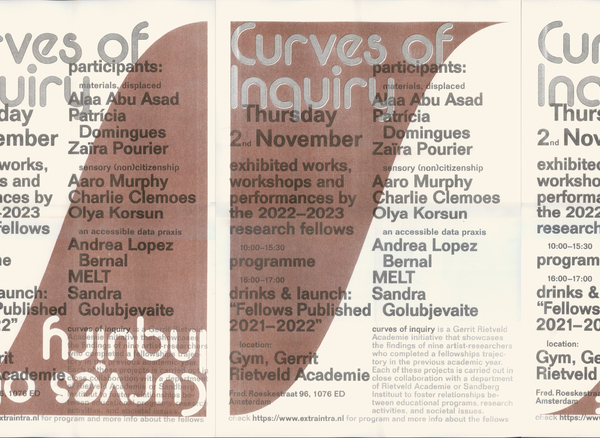Fellows 2022/2023
- Aaro Murphy (Studio for Immediate Spaces)
- Alaa Abu Asad (TxT)
- Alina Lupu (Photography)
- Andrea Lopez Bernal
- Charlie Clemoes (Architectural Design)
- MELT (Design Department)
- Olya Korsun (Critical Studies)
- Patrícia Domingues (Jewellery, Linking Bodies)
- Sandra Golubjevaite (VaV)
- Zaïra Pourier (Fine Arts)
Aaro Murphy
Fellow Project 2022/2023
During his fellowship, Murphy will dedicate his research around artificial smell production as a form of virtual space making. With a particular emphasis on the rise of synthetic aromas and digitised scenting in our cities, he aims to explore the social and political effects of olfactory space making.
Focusing specifically on the digitisation of smell through Headspace technologies Murphy speculates on the possibilities of odour as a tool for simulating architectural atmospheres.
Visiting smell laboratories, scientists and collaborating with smell manufacturers, he wishes to critically examine the processes of smell replication, deodorisation and diffusion in cities. As our urban space becomes systematically deodorised a new pasteurised architecture emerges; one with little natural smells left. Clean ubiquitous air is conditioned and coded to appear in vacuumed chambers, underground tunnels and transit hubs, while the suburb is surrounded by malodorous factories, industry and sewage. During the Fellowship Murphy’s plans on merging scientific research together with fiction to develop a new body of research involving written text and a new olfactory installation.
Bio
Aaro Murphy is an installation artist working with sound, animation, glass and smell. His work takes form as time based sculptures and kinetic installations exploring techno-human relationships and the poetics of machines. A recurring theme in Murphy’s practice is the ability for machines and complex mechanisms to adopt spatial agency and performative potential – shifting between robotic beings and instruments.
Murphy graduated from The Studio for Immediate Spaces in 2017 and has been based in Amsterdam since then. In October/November 2022, he is at The Tokyo Arts & Science, research residency organised by the Finnish Cultural Institute and BioArt Society, researching digital scenting systems and synthetic smell manufacturing.
Alaa Abu Asad
Fellow Project 2022/2023
In his research-based project ‘The dog chased its tail to bite it off’, Alaa Abu Asad has been working with invasive species, focusing on the infamous plant of the Japanese knotweed (fallopia japonica). He delves deeper into the ethnobotany realm of the plant and her sisters, revealing societal, national, economic, and most importantly linguistic implications.
Bio
Artist, researcher and photographer Alaa Abu Asad develops alternative trajectories in which (re)presentation, translation, looking, reading and understanding can intersect. His work takes form in writing, image making and interactive installations, in which he visualises his research and methodology of exploring the boundaries of languages.
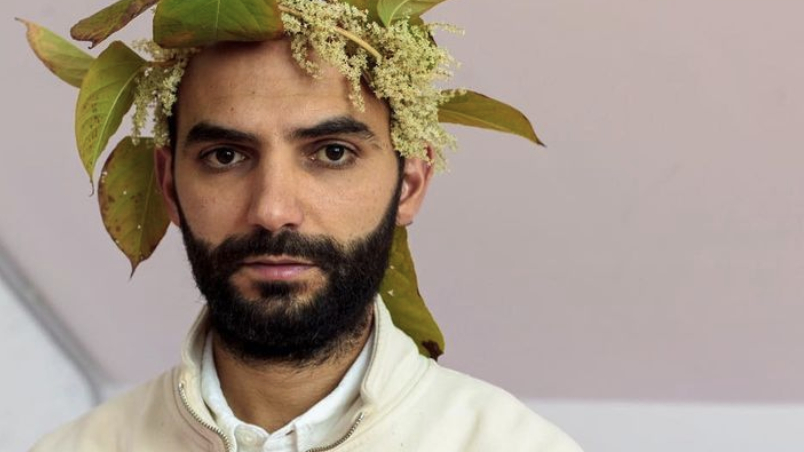
Alina Lupu
Fellow Project 2022/2023
"Caught between a rock and a hard place in development."
aka Artists, Gentrification, The City
Alina Lupu's research fellowship has as a main line of inquiry the way that artists relate to the process of gentrification as actors in it.
Gentrification is the process of changing the composition of urban neighborhoods by increasing the percentage of higher-income inhabitants and setting up new businesses. It's a process that is assumed to inevitably and purposefully displace inhabitants with a lower income and which contains an intermediary phase in which the neighborhood is made attractive and activated, usually through artistic interventions and moving in artists temporarily, often in concert with municipal institutions and property developers.
From their unique position as proponents of new ways of living and working, artists can be seen as both the pioneers of flex labor and flex living and also as instruments of gentrification, though their degree of willingness to participate in the process spans the range. In the grand hierarchy of city needs, they have been both treasured and made affordances for, as well as claimed space for themselves to put into practice new ways of living and working. Ultimately, when gentrification is spoken of, they have also been pushed out of the neighborhoods that have been gentrified since their economic condition tended to not align with the desired higher income aimed for after redevelopment.
Lupu is interested in mapping the different strategies of artists concerning gentrification: from willing collaborators to critical positioning, to resigned participants, since artists and their living and work practices span this range.
To (re)imagine, build, experience, work and live together in the city, to create new futures, one needs to also look towards the (recent) past through a critical lens that allows for finding sustainable and equitable alternatives. One needs to understand their condition to start thinking about moving beyond it.
Lupu's research will stretch between two Dutch cities which are currently undergoing rapid gentrification: Amsterdam and Rotterdam, and a potential third: the Hague. The fellowship is developed in collaboration with the Photography department of the Rietveld Academie. The fellowship's interests will also make a bridge to Lupu's new alma mater: the Royal Academy of the Arts in The Hague, where she will begin to study in the Master's program in Photography and Society in September 2022.
Bio
Alina Lupu was born and raised in Romania and works as a writer and artist in Amsterdam, Netherlands. She graduated from the Fine Arts Department of the Rietveld Academie in 2016. Since then she has worked for Deliveroo, Helpling, Foodora, Uber, Thuisbezorgd, Hanze Groningen, Willem de Kooning Academy, de Taart van m'n Tante and Poké Perfect Amsterdam. Her pension will eventually total just over 2 euros a month. Her work has been shown at: W139, Amsterdam; Onomatopee, Eindhoven; Hotel Maria Kapel, Hoorn; Drugo More, Rijeka; Rheum Room, Basel; European Lab, Lyon; Diskurs, Giessen; Rosa Luxemburg Stiftung, Berlin, and Goethe Institut, Bucharest. Alina Lupu is a general board member of Platform BK, an organization that researches the role of art in society and takes action for a better art policy, and starting September 2022, she will be a student of the Master Photography and Society at the Royal Academy of Arts in The Hague.
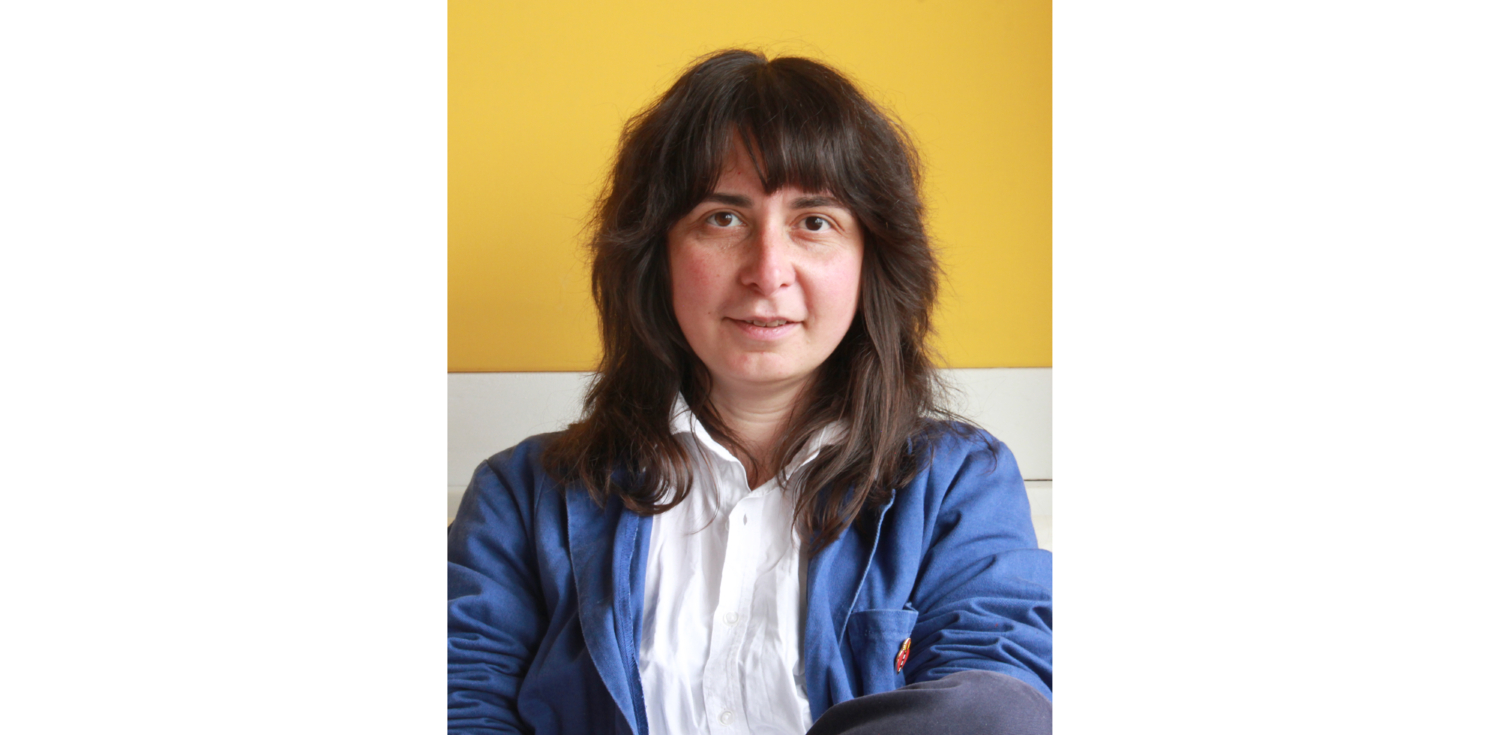
Andrea López Bernal
Fellow Project 2022/2023
As part of the fellowship program, Andrea López Bernal proposes for humans, us, to act art’ificially, in order to form new paradigms of inner and collective being. By using the performance as a tool to get closer to the state of the radical moment. Andrea is interested in the inbetween state, where the choreography meets reality and fuses creating constructed situations. Her intention is reflecting on the notions of Artificial Intelligence (AI) and discussing how performativity can work as an AI apparatus. In her practice, Andrea López Bernal explores the notion of authenticity in the various spheres of human experience, from love and friendship to work and political engagement. She does so by using a broad array of references and materials such as dental interventions, spirit stories, even tho immerges herself into unusual and sometimes challenging situations to investigate phenomena through the body, she combines these components to bitter sweet and surprising effect.
Bio
Andrea López Bernal, 1992, Guadalajara, México.
Visual Artist based in Barcelona.
Andrea has shown her work in loop festival, Barcelona (ES), Teatro San Materno, Ascona (CH). Combo Gallery, Venecia (IT), Bageion Hotel, Athens (GR). Participated in Academiae Biennial 2018 in Fortezza (IT), Zentro Azkuna, Bilbao (ES), Galería Angels Barcelona (ES), La Capella, Barcelona (ES). “Soft Landings: Charity Gala” at De Appel Amsterdam (NL), among other venues.

Charlie Clemoes
Fellow Project 2022/2023
Spatial theory should happen in space. This may seem obvious, but much like the wider practice of theory, it tends to occur in an essentially abstract institutional bubble, far from the sites where it matters, usually as a solitary pursuit and too often framed as something that only people with considerable knowledge can do. This fellowship project intends to explore various ways of making spatial theory a more collective and on-site endeavor.
To help bring the practice of theory to public space, the project will draw on a range of pedagogical and performance techniques: collective reading and “spectacting” (cf. Theatre of the Oppressed); collective walking (cf. Stalker); deep topography; deep listening exercises (cf. Pauline Oliveros); slow walks (cf. Oliveros “turning your feet into ears”); sound recording (cf. ibid); swarming (cf. Failed Architecture’s “Swarming the Red Light District” event with Tools for Action and Flo). Meanwhile, to make the discussion more of a collective endeavor, the initiator will draw on ideas developed with colleagues at Failed Architecture in the Situations Toolkit, particularly the various tactics included in the chapter “Establishing a Collectivity”. Particularly relevant to this proposal are the following tactics: introducing decision-making moments; breakaway discussion in pairs and threes; whole group discussion in circles or interconnected circles; spectrum voting; making marks/inscriptions at/on the site with found materials.
Bio
Charlie Clemoes (UK) is a writer, editor and podcaster with a background in architectural history. He works as an editor at Failed Architecture, hosts the Failed Architecture Podcast, is editor of the forthcoming book Building Workers Unite and is currently an organizer at NAA! (Netherlands Angry Architects) in association with the Bouwen section of the FNV. He is also co-host of the tetatet podcast series and initiator of the series "Making it Work." He teaches architectural theory at the Gerrit Rietveld Academy, the Academy of Architecture in Amsterdam and Fontys Tilburg. From 2022-23, he will be a resident at the Jan van Eyck Academy.
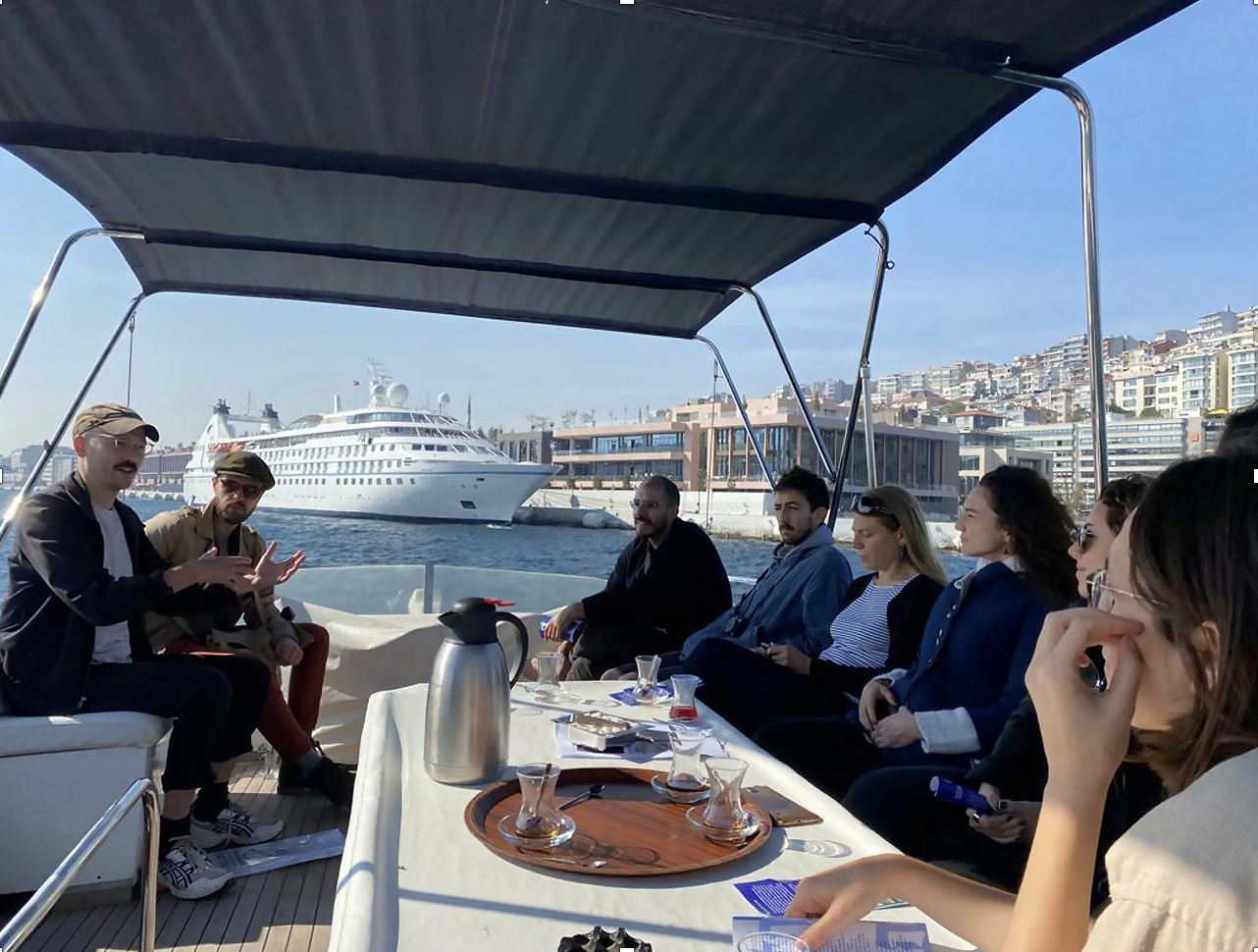
MELT
Fellow Project 2022/2023
The Predicting Backwards Computer (PBC) engages AI (algorithmic instability / ancestral intelligence) to predict backwards in time as thriving to imagine otherwise histories. A speculative art-design research, the PBC breaks with algorithmic habits of aggregating and predicting from today‘s oppressions. Rather the PBC wonders: what would data for trans* and disabled lives be?
Bio
MELT (Ren Loren Britton & Isabel Paehr) study and experiment with shape-shifting processes as they meet technologies, sensory media and pedagogies in a warming world. Meltionary (derived from "dictionary"), is a growing collection of arts-design-research engagements that cooks up questions around material transformations alongside impulses from Trans* feminism and Disability Justice. Melting as a kaleidoscope like phenomena touches upon multiple topics at once: climate change, the potential for political reformulations, change over time and material transformation. MELT shares work in the forms of videos, installations, websites, lectures, workshops.
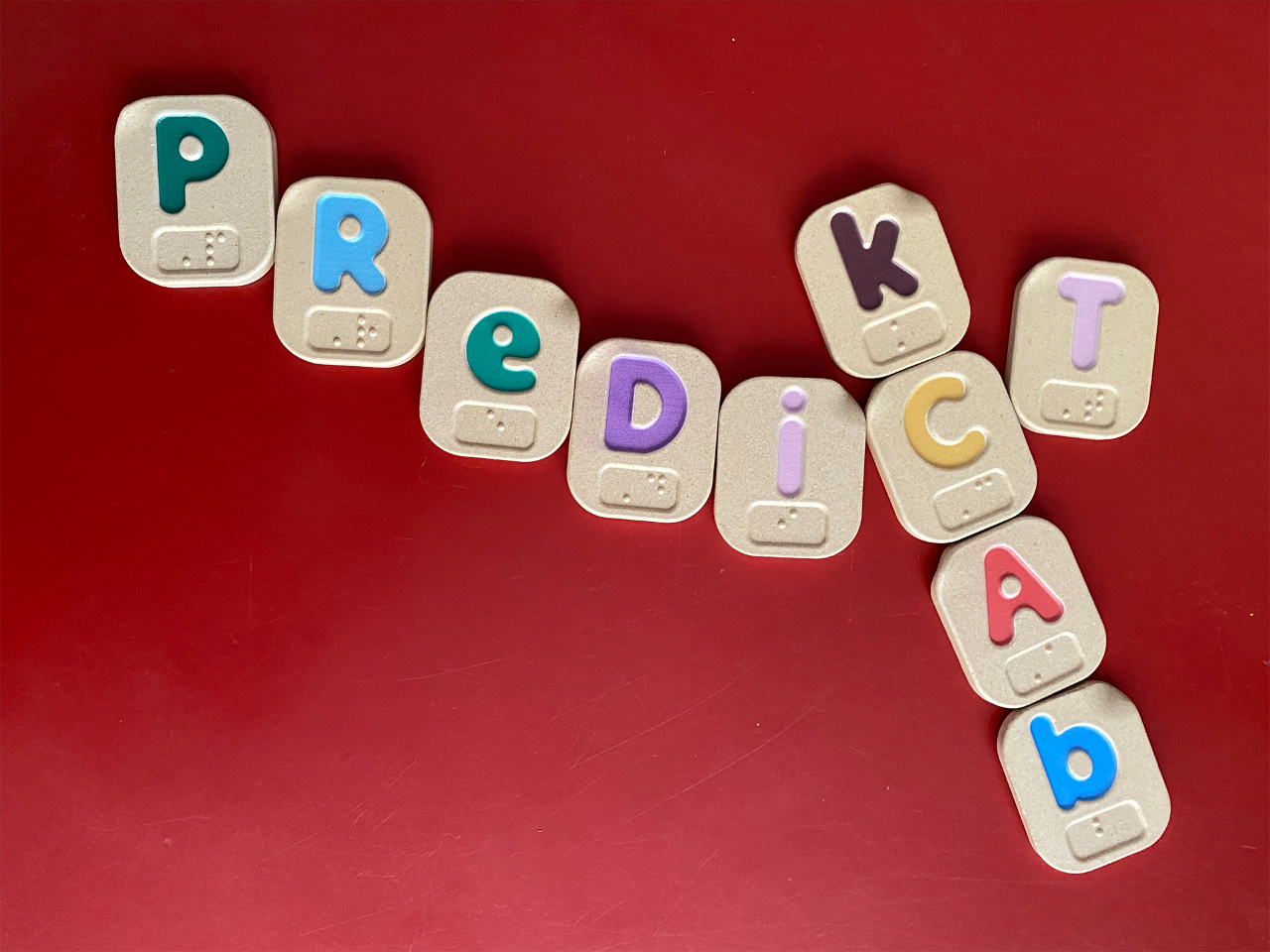
Olya Korsun
Fellow Project 2022/2023
During her fellowship Olya Korsun will attempt to map out and question the contours and structure of Western ecological imaginaries. Through the collective and individual study of eco-critical theory and experimental/queer/world cinema, she hopes to tap into the ways the existing imaginaries can be disrupted and bewildered.
Bio
Olya Korsun works across film, text and research. Her practice is driven by the constant inquiry into the ways knowledge and imaginaries of the natural world and its phenomena are built, distributed and dismantled. Her writings, performative lectures, visual essays, always unapologetically personal and poetic, invite the viewers to defamiliarize themselves with what is considered ‘known’ and experience it outside of the hegemonic orthodoxies. The varied subjects of her investigations intertwine into a polyphonic universe, where speculative geography is narrated through the noses and familial memories, the tropes of magic realism are applied to address the ecological crisis, and mutant herbariums are made to reflect on the displacement and border violence.

Patrícia Domingues
Fellow Project 2022/2023
Technology, algorithms and A.I. are shaping our life’s while they also have major impacts on surrounding landscapes. With my background in the craft of stone cutting, I am interested in understanding how materials and landscapes are cut, fractured and broken up and how the fragmentation and reconstruction of the landscape is intimately connected with human skills, techniques and technologies. For the Gerrit Rietveld Academy and Sandberg Institute Fellowship, I will use methodologies of care, crafting relationships among technological materials, artefacts, environments and human bodies to generate relations of empathy with the hidden world beneath our feet - exploring the geological substratum as multiplicities of elements and time diversity. In the homogenization and massification of this technocentric world, craft`s sensibility can work as a gear to help us to find more-than-human infinitudes in technology. How is A.I. framing the way humans think while simultaneously reshaping drastically the way landscapes are handled? The main focus involves exploring the way technology lives through extractivism, dependent on mineral and geological sources. As such, more than human extensions, technologies are reverberations of the Earth.
Bio
Patrícia Domingues (Lisbon, Portugal, 1986) holds a Master of Arts from the Gemstone and Jewellery Design Department, University of Trier in Idar-Oberstein, Germany (2010) and a Doctorate in the arts from the University of Hasselt & PXL-MAD, School of Arts in Belgium (2022). Since 2009 she has participated in collective and solo exhibitions throughout Europe and abroad. Her work has been recognised by international jewellery awards: New Traditional Jewellery in Amsterdam (2012), Talente Award in Munich (2014), Mari Funaki Award for emerging artist in Australia (2014) and the Young Talent Prize of the European World Crafts Council in Belgium (2015).
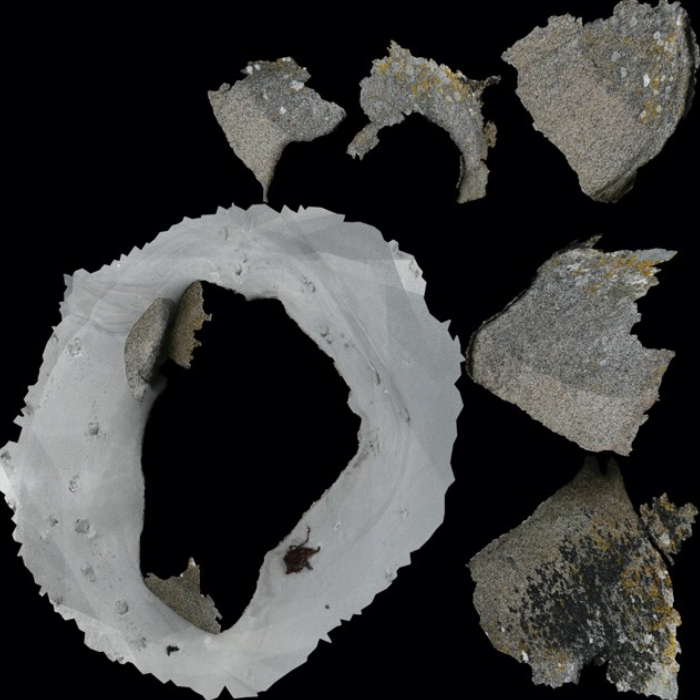
Sandra Golubjevaite
Fellow Project 2022/2023
During the fellowship, Golubjevaite will explore the topic of DIY self-hosting and local digital spaces. Managing even the smallest server comes with many responsibilities, efforts, and nuances, but she believes that a hands-on approach that is not afraid of failing and debugging is the best way to learn and stimulate thinking about our digital tools and networks. She, therefore, wants to set up a localhost server at the academy and make it physically visible. ‘Localhost’ means that the server and its content will only be accessible in the local area of the Gerrit Rietveld Academy. She wishes to explore the potential of this server by turning it into a local digital gallery space, similar to how the Glass Pavilion functions. The Glass Pavilion is an excellent example of a collaborative space in the academy that occasionally brings the Rietveld community together.
Similarly, she aims to experiment with a concept of a local communal digital space that connects the students and stimulates DIY knowledge exchange. In addition to being a shared place to showcase digital artworks, she is also interested in experimenting with using the server as a local commonplace for publishing or sharing open-source educational resources related to digital practices, focusing on feminist tech practices. Golubjevaite wants to learn more about this field and map out and document the existing/-ed autonomous feminist servers, hackerspaces, and initiatives. These practices share a common goal to reject and act to break out from the conventional male-dominated ideas about knowledge and technology. They create space for more inclusive, personal, intuitive ways of learning and practicing within the field. Following her own experiences as a self-taught coder, she has found it essential to facilitate a beginner-friendly learning environment and a non-intimidating first contact with code and machines. Throughout this fellowship, one of her biggest goals would be to encourage students not to be “intimidated” by code and to challenge their role as digital users and to shift it towards being active and curious contributors.
Bio
Sandra Golubjevaite (she/her) is a text±sound artist and a creative coder based in the Netherlands. Digital// audiovisual performances and DIY interfaces lie at the core of her practice. She educates herself about code and digital technologies at her own pace and refuses the commodified masculine-imposed approaches to software development by prototyping her own language-based tools. Her work focuses on non-linear narratives, non-reading, hypertext and auto-fiction. Through her practice she seeks to create a bridge between language, autobiography and coding practices. She graduated from the Gerrit Rietveld Academie in Amsterdam in 2017 with a BFA and has further developed her artistic education at the Piet Zwart Institute in Rotterdam.

Zaïra Pourier
Fellow Project 2022/2023
Resonance in Displacement - Unearthing the Soul of Diasporic Artefacts
We are the echoes of history, a collection of displaced artefacts from the African and Caribbean Diaspora. Drums adorned with the vivid pigments of ancestral dances, chairs bearing engravings steeped in the weight of centuries, and baskets woven with the artistry of calligraphy—all once integral to our homelands, now resting in Western homes. In this dedicated journey, led by our custodian, Zaïra Florance Pourier, who has meticulously curated these objects from various sources, we unveil the stories etched into each grain of wood and thread of fabric, exploring the soft language of craftsmanship and the resonance of diaspora. This endeavour captures not only objects but the sonorous echoes of history, melodies and conversations traversing continents, weaving a tapestry of memory, and offering a deeper resonance, an intimate connection to our origins.
"Resonance in Displacement" seeks to emphasise the enduring significance of these artefacts, harmonising in the space between displacement and belonging.
Bio
Zaïra Florance Pourier is a Caribbean-rooted architect. Her versatile commitments encompasses spatial interventions, education, and studies, with a profound emphasis on themes related to colonial history, diaspora, and heritage, stemming from her Caribbean and African roots. Currently based in Amsterdam South East, Zaïra actively engages with her surroundings by collecting traces, objects, and ingredients that speak to her rich cultural background. Through her contributions, she strives to unravel the narratives embedded within these cultural artefacts, seeking to bridge the past with the present.
